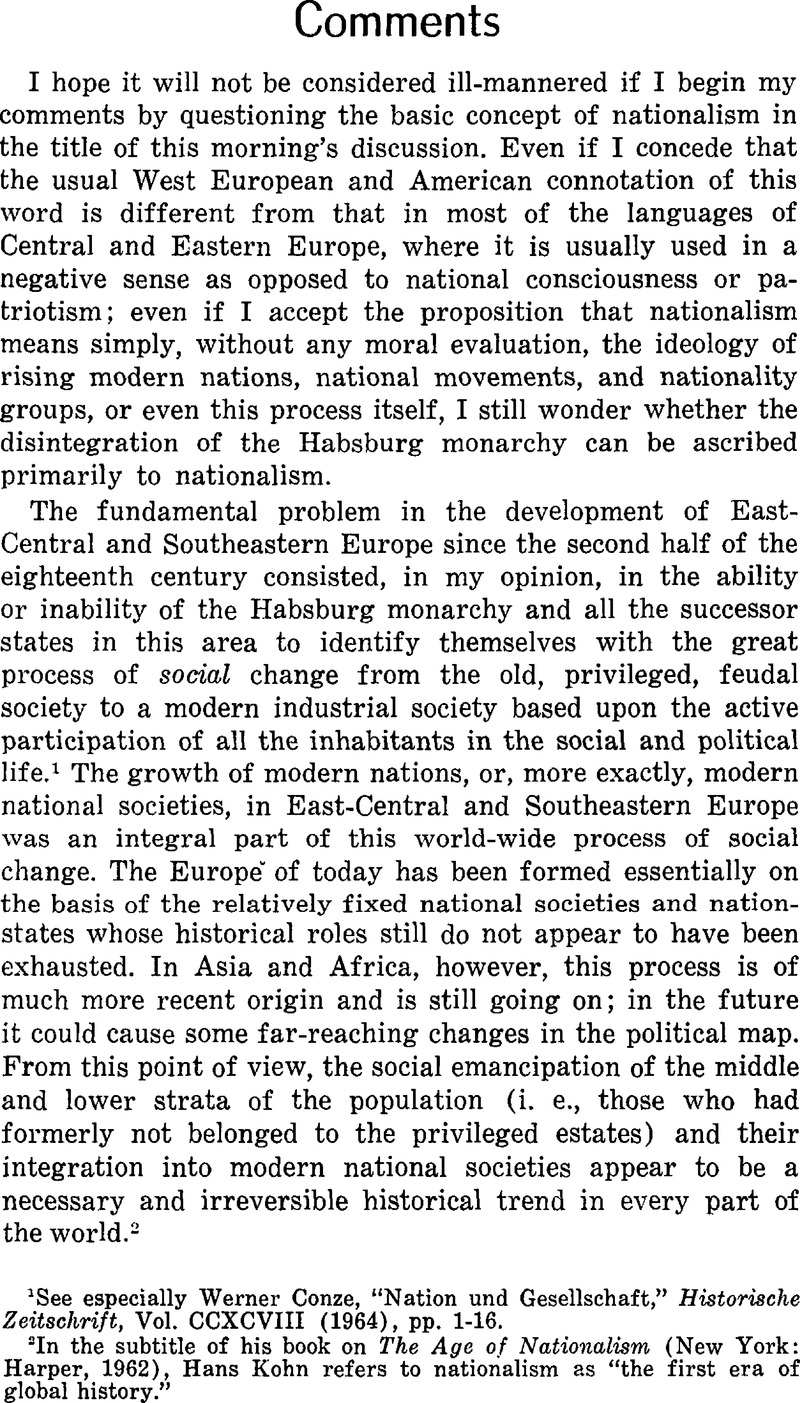Published online by Cambridge University Press: 10 February 2009

1 See especially Conze, Werner, “Nation und Gesellschaft,” Historische Zeitschrift, Vol. CCXCVIII (1964), pp. 1–16CrossRefGoogle Scholar.
2 In the subtitle of his book on The Age of Nationalism (New York: Harper, 1962), Hans Kohn refers to nationalism as “the first era of global history.”
3 See especially Lemberg, Eugen, Nationalismus. In Rowohlts Deutsche Enzyklopädie, No. 197–199 (2 vols., Reinbeck bei Hamburg: Rowohlt, 1964), Vol. II, p. 38Google Scholar.
4 In his paper on “The Dynasty and the Imperial Idea.”
5 For example, Prof. Hoffman characterizes Switzerland as a “multinational state.” I think that, in spite of its multilingual and multi-ethnic composition, Switzerland has developed into a single political nation.
6 See my recent discussion of Prof. Hans Kohn's report to the XIIth International Congress of Historical Sciences in Vienna in 1965 in my article entitled, “Some Remarks on the Concepts of Nationalism and Internationalism,” which has been published in Historica, Vol. XIII (1966).
7 For instance, double words like “nation” and “people” (English), “nation” and “peuple” (French), “Nation” and “Volk” (German), and “natsia” and “naros” (Russian) can be found in practically all European languages. In the corresponding terms in Czech (“národ” and “lid”) and Slovak (“národ” and “l'ud”) the first of these words (“národ”) was used for a long time—even in the twentieth century—to express almost the same meaning as that of the second of the double words in German (“Volk”).
8 See Snyder, Louis L., The Meaning of Nationalism (New Brunswick, N. J.: Rutgers University Press, 1954)Google Scholar.
9 Rogachov, P. M. and M. A. Sverdlin, “O ponjatii ‘natsia’” [The Concept of ‘Nation’], Voprosy istorii, Vol. XLI, No. 1 (1966), pp. 33–48Google Scholar.
10 Above all, this involves a subjective approach to the question of what constitutes membership in any national group, whereas, as a collective entity, the nation has an existence and features which can be evaluated objectively.